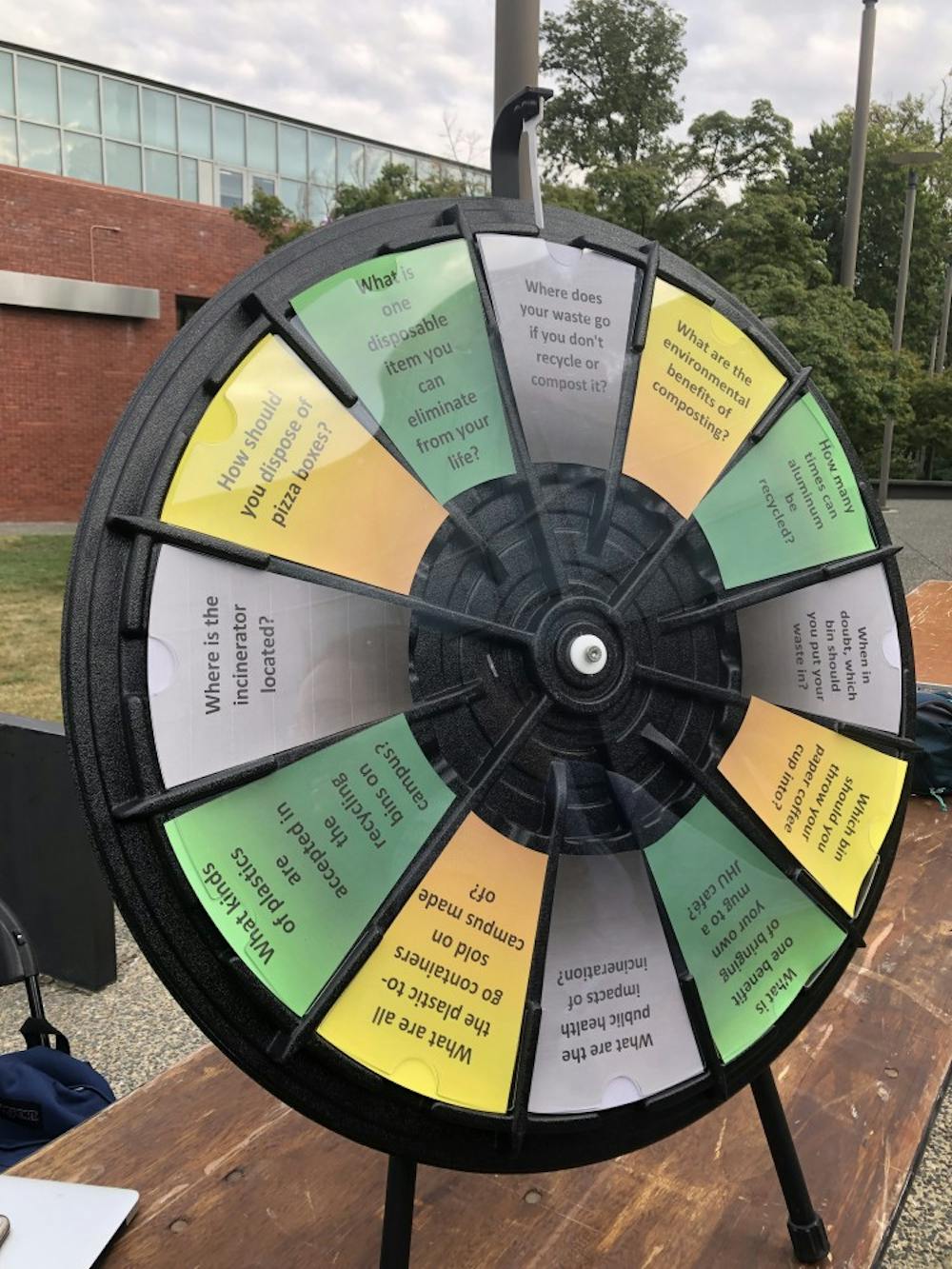The Hopkins Student Organization for Programming (HOP) hosted Sustainable Boba Bash in the Mattin Center Courtyard on Friday. Students were invited to enjoy boba tea with a reusable metal straw while learning about different environmental causes.
Senior Jenna Colombo, head event organizer, mentioned that the event’s mission was to promote sustainability.
“We are trying to first be sustainable and promote good practices for the environment. We also wanted to have a fun event for students with yummy boba,” Colombo said. “It’s all about being environmentally conscious.”
When asked about why people find it difficult to be environmentally friendly, Colombo noted that the main problem lies with convenience.
“It’s easy to use things once and throw it away,” she said.
Students visited booths hosted by different environmentally focused organizations at Hopkins. Each student received a sheet of paper with the names of the different organizations, which they could fill with stickers from each table after participating in that group’s activities.
Five stickers could be redeemed for boba or a reusable metal straw, and seven stickers could be redeemed for both.
In an effort to promote sustainable practices, attendees were encouraged to bring their own container for boba.
Student organizations such as Real Food Hopkins, PETA2 and Students for Environmental Action (SEA) introduced their goals to students through short speeches or interactive games.
Each organization seeks to raise awareness for environmental causes in a different way.
For example, SEA advocates for and promotes changes that will help increase sustainability on campus. Real Food Hopkins is the University’s chapter of the Real Food organization, which works to create a more fair and sustainable food system.
Compassion, Awareness, and Responsible Eating for Farm Animals (CARE) advocates plant-based lifestyles and seeks to improve the conditions of animals in agricultural production.
Homewood Recycling put up a spinning wheel with different questions related to sustainable garbage disposal, such as “How should you dispose of pizza boxes?” and “What are the environmental benefits of composting?” SEA asked students to pick a random slip of paper with an item on it and choose its proper disposal method. This aimed to counter ‘wish-cycling’ — the practice of attempting to recycle non-recyclables.
One organization explained how the dairy industry is a significant contributor to greenhouse gas emissions, while plant-based alternatives to dairy produce significantly lower emissions.
In order to encourage consumption of lower-emission generation products, the “milk” provided for the boba were all vegan options, such as almond milk and oat milk powder.
Freshman Angela Li said that while the event did increase awareness about sustainability, she had already known most of the information presented.
Freshman Annie Yang said that coming to Hopkins had already introduced her to sustainability because of different aspects of campus, including the different cans for different disposal methods.
She said that she has already been trying to be sustainable, explaining that she had bought metal straws from Amazon.
As Colombo noted, acting sustainably can be less convenient for consumers. Hopkins encourages environmental stewardship by offering an incentive for students; all coffee shops on campus offer a discount on coffee to customers who bring reusable beverage containers. The Daily Grind, for example, charges only $1.59 for hot or iced brewed coffee when students bring their own cup. Hopkins also provides compostable to-go boxes at all dining locations on campus which students can dispose of using compost bins located across Homewood campus.





